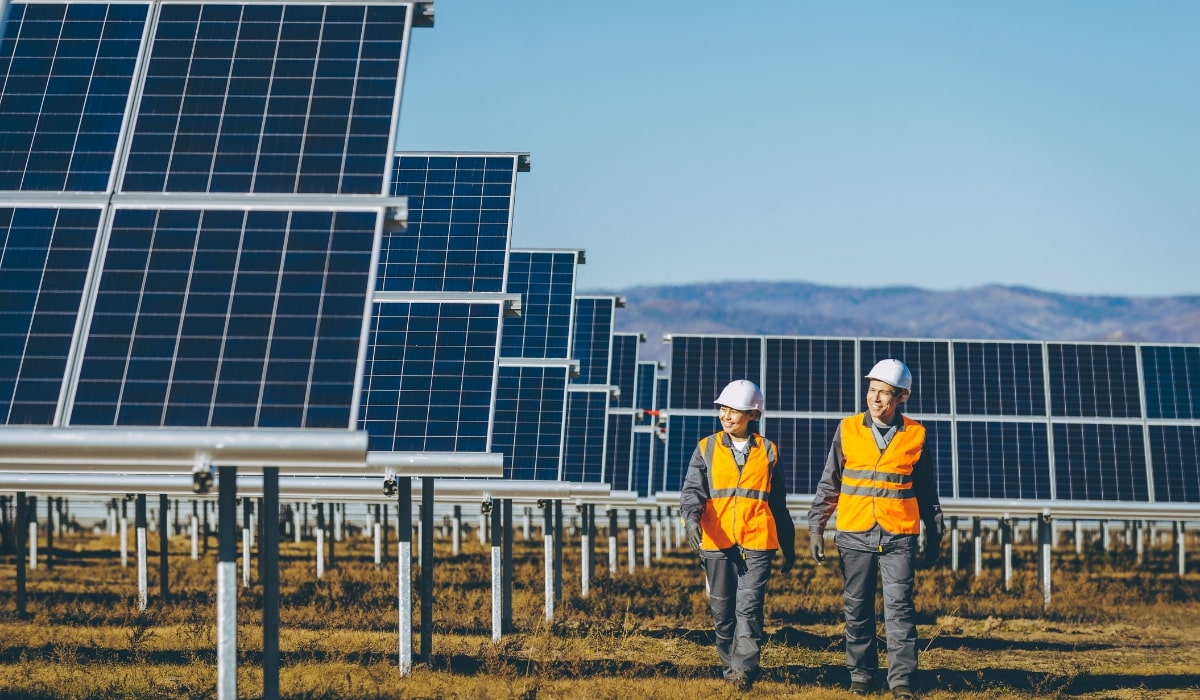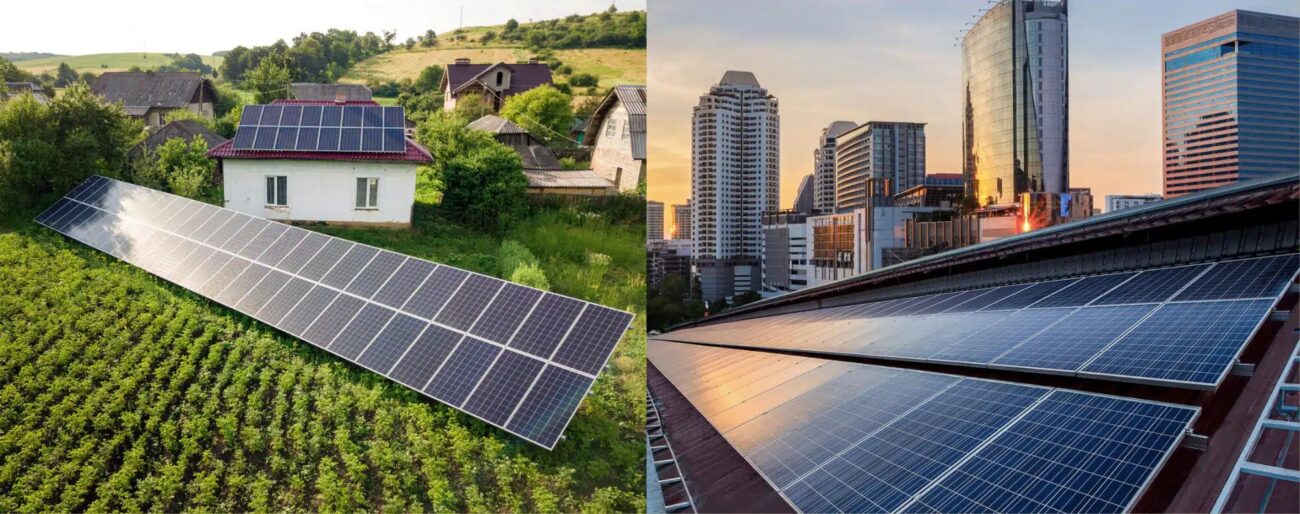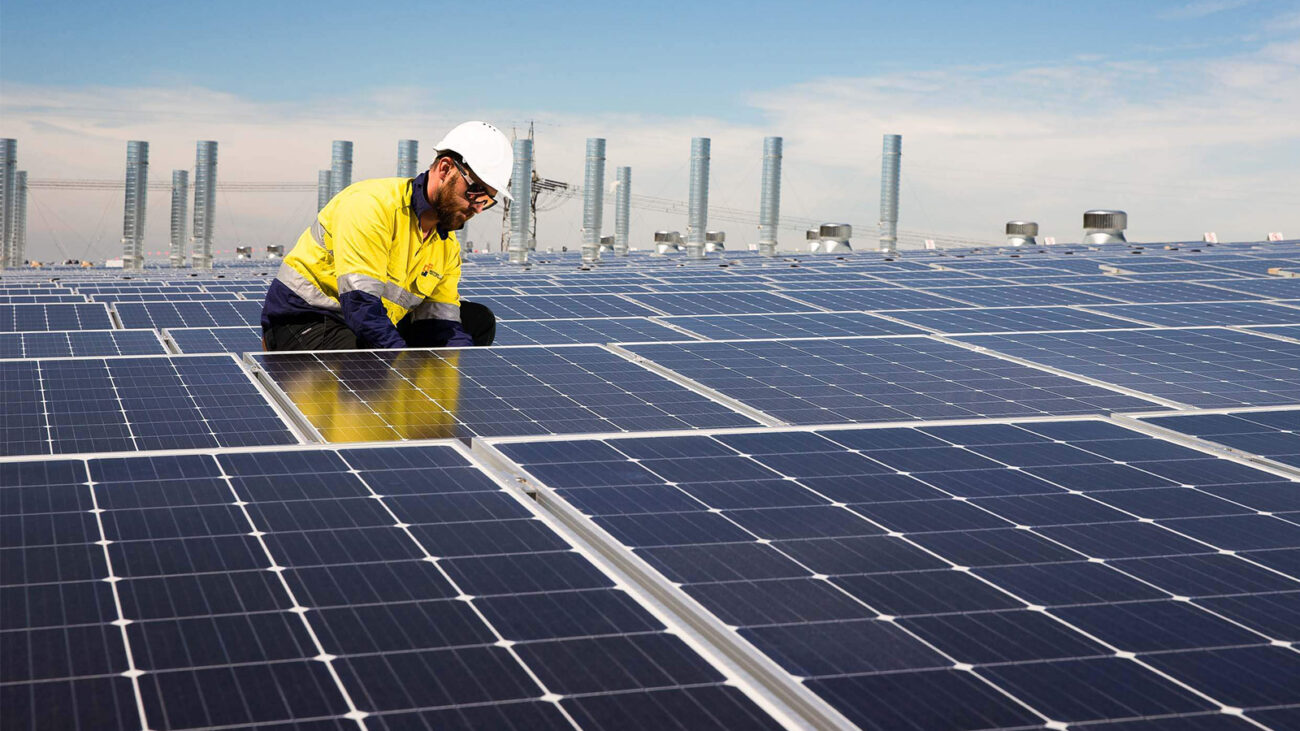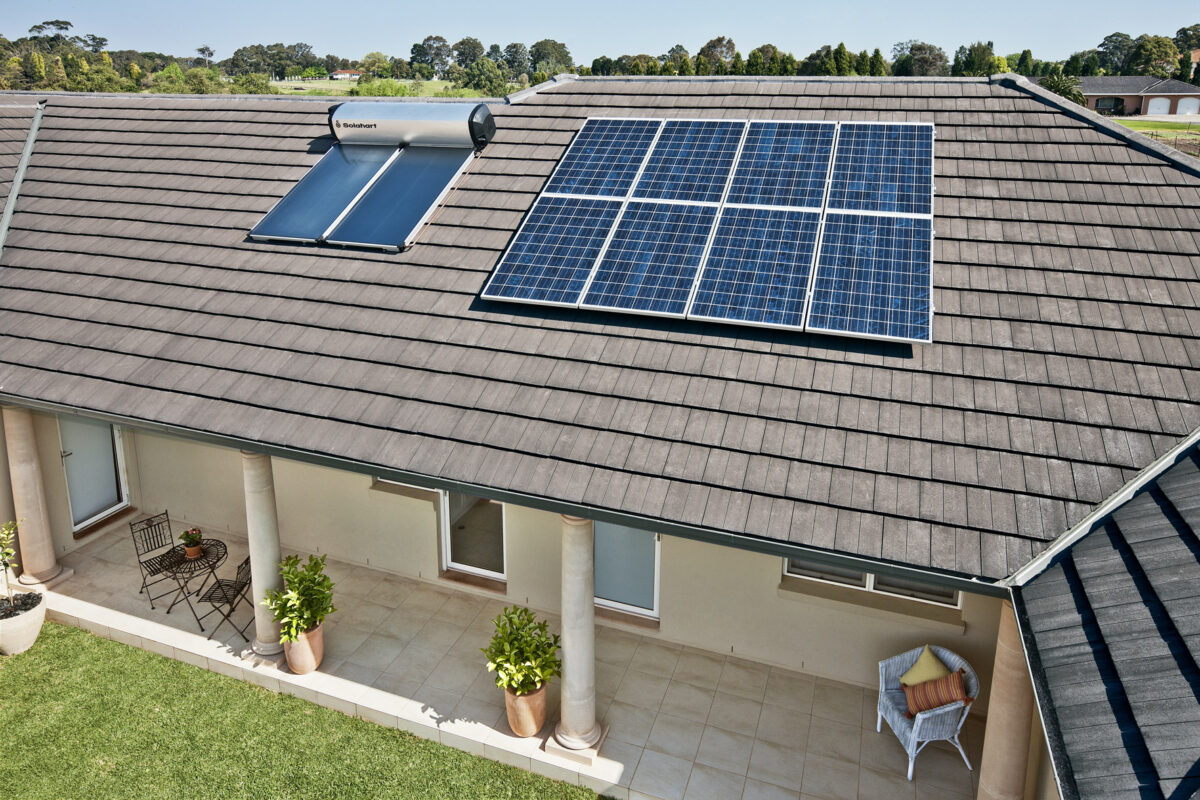Embarking on solar panel installation in dubai can feel overwhelming without understanding the step-by-step process involved. From initial consultation through final grid connection, each phase has specific requirements and timelines that help ensure successful project completion under DEWA’s Shams Dubai program.
This comprehensive guide walks you through every stage of the installation journey, helping you prepare for what lies ahead while setting realistic expectations for your renewable energy investment.
Pre-Installation Phase: Planning and Preparation
The journey begins well before any equipment arrives at your property. Your chosen contractor conducts detailed site assessments examining roof condition, structural capacity, electrical infrastructure, and shading patterns that affect system performance.
During this phase, expect multiple site visits from different professionals including sales consultants, engineers, and project managers who each evaluate specific aspects of your installation requirements.
Documentation collection starts early, including property ownership verification, DEWA account details, and building permits that support your application through Dubai’s regulatory approval process.
Professional solar panel installation services will provide detailed system proposals showing equipment specifications, energy production projections, and financial analysis that helps you make informed investment decisions.
DEWA Application and Approval Timeline
No Objection Certificate (NOC) Process
The formal solar panel installation process begins when your contractor submits the NOC application to DEWA through their online portal. This application includes property documentation, preliminary system specifications, and contractor certification verification.
Expect the NOC approval process to take 5-10 business days for residential installations, though commercial projects may require additional review time due to their complexity and size requirements.
During this period, DEWA reviews your property eligibility, contractor qualifications, and basic compliance with Shams Dubai program requirements before issuing preliminary approval to proceed.
Your contractor handles all DEWA communications during this phase, keeping you informed of progress while managing any additional documentation requests that may arise.
Design Approval Submission
Following NOC approval, detailed system designs must be submitted including electrical drawings, equipment specifications, and installation plans that comply with DEWA’s technical standards.
Professional solar system installation in dubai requires comprehensive documentation showing single-line electrical diagrams, panel layout drawings, and structural calculations that demonstrate system safety and performance.
Design approval typically takes 10-15 business days, during which DEWA engineers review technical specifications and ensure compliance with safety standards and grid integration requirements.
This phase may involve design revisions based on DEWA feedback, requiring additional time for corrections and resubmission before final approval is granted.
Equipment Procurement and Delivery Coordination
Once design approval is secured, equipment procurement begins based on approved specifications and delivery timelines. Quality contractors maintain relationships with DEWA-approved suppliers to ensure equipment availability and timely delivery.
Expect delivery coordination phone calls to schedule equipment arrival times that align with your availability and installation crew schedules. Most residential systems require 1-2 delivery days for all components.
Professional installers inspect all equipment upon delivery, verifying quantities, specifications, and condition before accepting delivery to prevent installation delays from damaged or incorrect components.
Storage requirements during the pre-installation period are minimal for most residential projects, with equipment typically delivered 1-2 days before installation begins to minimize storage time and handling.
Installation Day(s): What Actually Happens
Site Preparation and Safety Setup
Installation begins early in the morning with crew arrival, site assessment, and safety equipment setup including ladder placement, safety barriers, and tool organization around your property.
Professional teams establish clear work areas while protecting landscaping, vehicles, and property features that could be affected during the installation process.
Expect installation crews to conduct safety briefings, review work plans, and coordinate with property occupants about access requirements and any temporary service disruptions.
Companies like Yanvi Solar prioritize safety protocols including proper personal protective equipment, fall protection systems, and clear communication about work areas and potential hazards.
Mounting System Installation
The physical installation process begins with mounting system attachment to your roof structure. Professional installers use specialized equipment to ensure proper positioning, spacing, and structural integrity.
Expect some noise during this phase as crews use power tools for mounting system attachment, though professional teams work efficiently to minimize disruption duration.
Installers carefully mark mounting locations, drill attachment points, and apply weatherproofing materials that prevent water infiltration while maintaining roof warranty coverage.
Quality installations include regular measurements and adjustments to ensure perfect panel alignment and optimal spacing for maximum energy production throughout system lifetime.
Electrical Integration and Panel Mounting
Solar panel installation are carefully positioned and secured to mounting systems using specialized clamps and hardware designed for Dubai’s wind loads and thermal expansion requirements.
Electrical connections between panels follow precise patterns shown in approved drawings, with installers using professional-grade connectors and cable management systems for long-term reliability.
Expect installation teams to work methodically through panel placement, ensuring proper spacing, alignment, and electrical continuity throughout the array configuration.
Inverter installation requires coordination with existing electrical systems, including disconnect installation, meter placement preparation, and grounding system integration that meets safety standards.
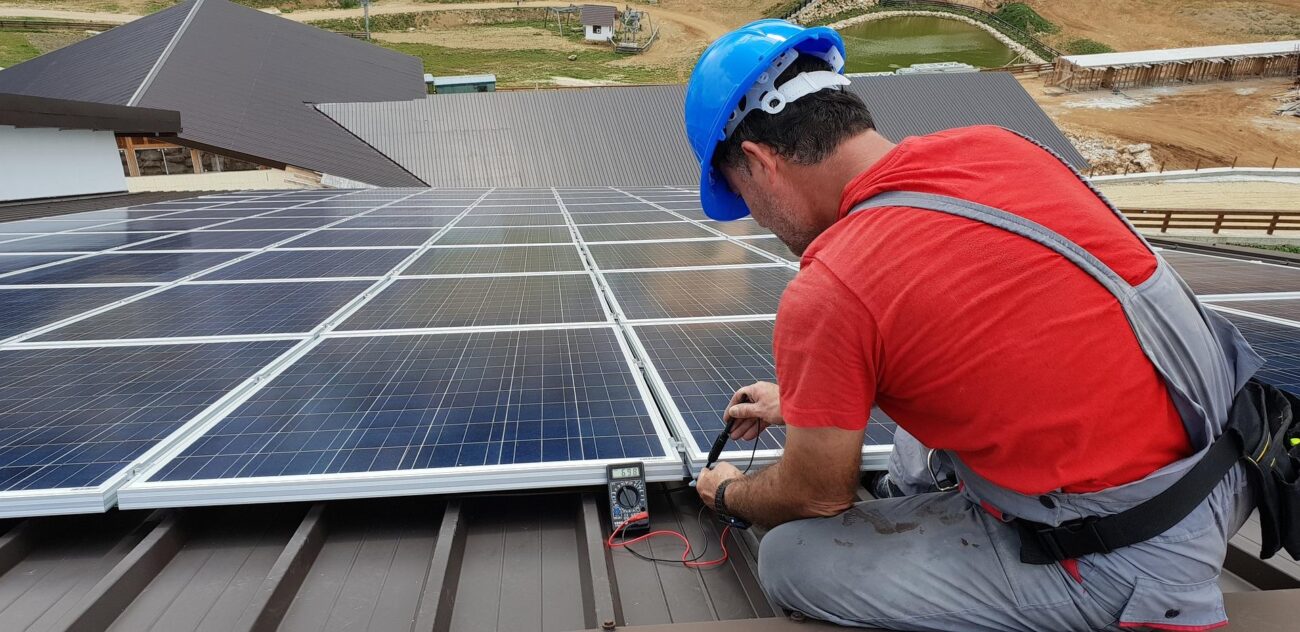
Quality Assurance and Testing Procedures
System Performance Verification
Professional solar panel suppliers in dubai includes comprehensive testing procedures that verify electrical connections, system performance, and safety system functionality before requesting DEWA inspection.
Expect installers to conduct electrical continuity tests, insulation resistance measurements, and ground fault protection verification that ensures system safety and optimal performance.
Performance testing under various conditions helps identify any installation issues requiring correction before final system commissioning and handover to property owners.
Documentation of all testing results provides verification of installation quality while supporting warranty claims and ongoing system monitoring throughout operational periods.
Safety System Verification
Critical safety systems including anti-islanding protection, rapid shutdown capabilities, and emergency disconnect functionality undergo thorough testing to ensure proper operation during emergencies.
Professional installers verify that safety systems meet DEWA standards and manufacturer specifications while providing clear operation instructions for property owners and emergency responders.
Testing procedures include simulated grid outages, emergency shutdown procedures, and verification that all safety labeling and signage meets regulatory requirements and best practices.
Quality assurance extends to weatherproofing verification, ensuring all electrical connections and penetrations are properly sealed against Dubai’s occasional heavy rainfall and sandstorm conditions.
Post-Installation Inspection and Grid Connection
DEWA Inspection Scheduling
Following solar panel installation completion, your contractor coordinates DEWA inspection scheduling while ensuring all system documentation and testing results are prepared for review.
Expect inspection scheduling to occur within 1-2 weeks of installation completion, with DEWA providing specific appointment times that require property owner or authorized representative presence.
Professional contractors accompany DEWA inspectors during site visits, providing technical explanations and addressing any questions or concerns that arise during the inspection process.
Inspection preparation includes system cleanliness verification, documentation organization, and confirmation that all installation details match approved specifications exactly.
Smart Meter Installation and System Activation
Successful inspection leads to smart meter installation scheduling, which enables bidirectional electricity measurement for net metering calculations under DEWA’s Shams Dubai program.
Expect brief electrical service interruption during meter installation, typically lasting 30-60 minutes while DEWA technicians complete meter replacement and system connection procedures.
System activation occurs immediately following meter installation, with solar production beginning as soon as panels receive sunlight and all safety systems verify proper grid connection.
Professional installers provide system orientation including monitoring app setup, performance explanation, and maintenance guidance that helps you maximize investment returns throughout system lifetime.
System Monitoring and Performance Optimization
Initial Performance Tracking
Your new solar panel installation system includes monitoring capabilities that track energy production, consumption patterns, and system health through user-friendly smartphone applications or web portals.
Expect initial performance variations as system components stabilize and you develop familiarity with monitoring tools and energy production patterns throughout different weather conditions.
Professional installers provide training on monitoring system features while explaining normal performance variations and indicators that might suggest maintenance or service requirements.
Solar rooftop installation in dubai projects benefit from ongoing monitoring that helps identify optimization opportunities and ensures systems continue delivering expected performance and financial benefits.
Ongoing Support and Maintenance
Quality installation companies provide ongoing support including performance monitoring, maintenance scheduling, and technical assistance throughout system operational lifespans.
Companies like Yanvi Solar offer comprehensive maintenance programs that include cleaning services, electrical inspections, and performance optimization to maintain peak system efficiency.
Expect regular communication from your installer during initial months to ensure system performance meets expectations while addressing any questions or concerns about system operation.
Professional support services help protect your investment through proactive maintenance and rapid response to any technical issues that might affect system performance or safety.
Conclusion
Understanding what to expect during solar panel installation in dubai helps you prepare for each phase while maintaining realistic expectations about timelines, processes, and outcomes throughout your renewable energy journey.
Professional installation teams guide you through every step while ensuring compliance with DEWA requirements, safety standards, and performance expectations that deliver long-term satisfaction and investment returns.
Your solar panel installation represents a significant step toward energy independence while contributing to Dubai’s Clean Energy Strategy 2050 goals and creating a more sustainable future for generations to come.

